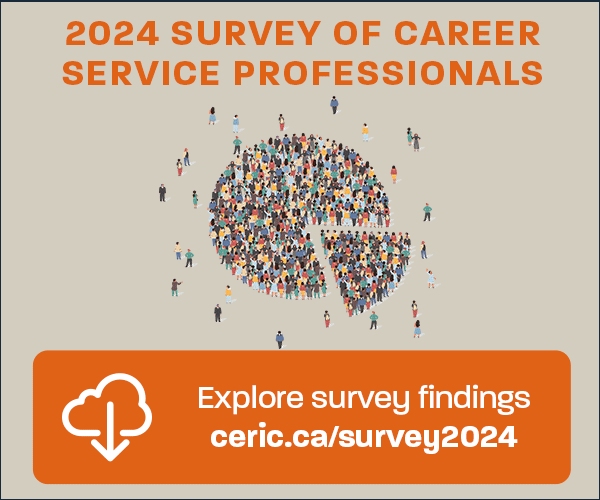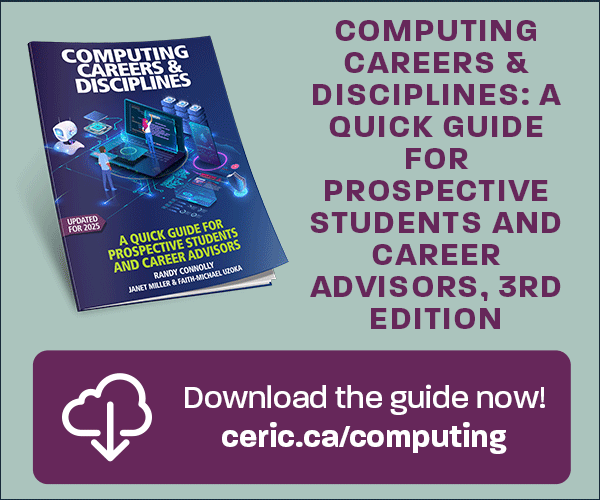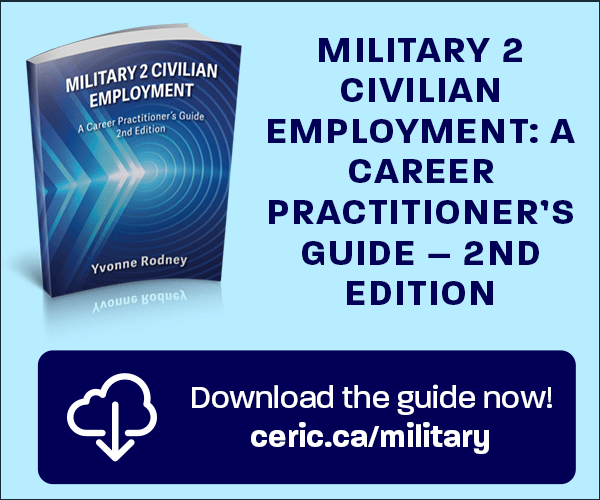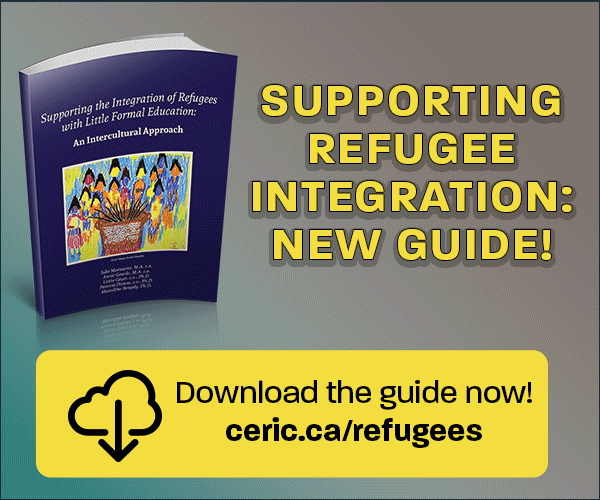Employability Skill Development: Faculty Members’ Perspectives in Non-Professional Programs
DOI:
https://doi.org/10.53379/cjcd.2022.120Keywords:
undergraduate non-professional programs, ca, skill development, faculty members perspectivesAbstract
The purpose of this study was to explore faculty perspectives about employability and employability skill development through curricular activities in non-professional programs. Using pre and post semi-structured interviews, this study embedded employability skills in three academic courses to gain insight into faculty members’ perspectives on employability skill development. Results reveal that the faculty members involved in the study addressed employability to differing degrees in their courses, yet each recognized the importance for students. The outcomes of this study support the need for the development of employability initiatives in higher education and highlights that faculty members can benefit from support in identifying and assessing the employability skills practiced in academic courses.
References
Artess, J., Hooley, T., Mellors-Bourne, R. (2017). Employability: A review of the literature 2012 to 2016. Higher Education Academy Report. [Online]. Available: https://s3.eu-west-2.amazonaws.com/assets.creode.advancehe-document-manager/documents/hea/private/resources/employability_a_review_of_the_literature_1568037358.pdf
Bridgstock, R., Grant-Imaru, M., & McAlpine, A. (2019). Integrating career development learning into the curriculum: Collaboration with the careers service for employability. Journal of Teaching and Learning for Graduate Employability, 10(1), 56–72.
Brown. K.E. (2015). Employability and the liberal arts: A career readiness initiative. Thought & Action: The NEA Higher Education Journal, 1(2), 49-56. [Online]. Available: https://www.naca.org/JCAPS/Documents/Developing_Employability_Skills.pdf
Caelli, K., Ray, L., & Mill, J. (2003). “Clear as mud”: Toward greater clarity in generic qualitative research. International Journal of Qualitative Methods, 2(2), 1–24. https://doi.org/10.1177%2F160940690300200201
Campbell, M., Cooper, B., Rueckert, C., & Smith, J. (2019). Reimagining student employability: a case study of policy and practice transformation. Journal of Higher Education Policy and Management, 41(5), 500-517. https://doi.org/10.1080/1360080X.2019.1646379
Canadian University Survey Consortium (2015). 2015 Graduating university student survey. [Online]. https://www.cusc-ccreu.ca/CUSC_2015_Graduating_Master%20Report_English.pdf
Canadian University Survey Consortium (2016). 2016 First-year university student survey. [Online]. Available: https://www.cusc-ccreu.ca/publications/CUSC_2016-First-Year-Report-EN.pdf
Conference Board of Canada (n.d.). Employability Skills. [Online]. Available: https://www.conferenceboard.ca/edu/employability-skills.aspx
Gbadamosi, G., Evans, C., Richardson, M., & Ridolfo, M. (2015). Employability and students’ part-time work in the UK: Does self-efficacy and career aspiration matter? British Educational Research Journal, 41(6), 1086-1107. https://doi.org/10.1002/berj.3174
Gedye, S., & Beaumont, E. (2018). “The ability to get a job”: Student understandings and definitions of employability. Education + Training, 60(5), 406-410. https://doi.org/10.1108/ET-10-2017-0159
Goodwin, J. T., Goh, J., Verkoeyen, S., & Lithgow, K. (2019). Can students be taught to articulate employability skills? Education & Training, 61(4), 445-460. https://doi.org/10.1108/ET-08-2018-0186
Jackson, D. (2012). Business undergraduates’ perceptions of their capabilities in employability skills: Implications for industry and higher education. Industry and Higher Education, 26(5), 345-356. https://dx.doi.org/10.5367/ihe.2012.0117
Knight, P T., & Yorke, M. (2002). Employability through the curriculum. Tertiary Education and Management, 8, 261-276.
Leach, T. (2015). Graduates’ experiences and perceptions of career enactment: identity, transitions, personal agency and emergent career direction. Research in PostCompulsory Education, 20(1), 50-63, https://doi.org/10.1080/13596748.2015.993872
Mason, G., Williams, G., & Cranmer, S. (2009). Employability skills initiatives in higher education: What effects do they have on graduate labour market outcomes? Education Economics, 17(1), 1-30. https://doi.org/10.1080/09645290802028315
Merriam, S. B. (1998). Qualitative research and case study applications in education. San Francisco: Jossey-Bass.
Merriam, T. B., & Tisdall, E. J. (2016). Qualitative Research: A Guide to Design and Implementation (4th ed.). San Francisco, CA: Jossey-Bass Higher and Adult Education Series
Molla, T., & Cuthbert, D. (2015). The issue of research graduate employability in Australia: An analysis of the policy framing (1999-2013) The Australian Association for Research in Education, 42, 237-256. https://doi.org/10.1007/s13384-015-0171-6
Monteiro, S., Ferreira, J. A., & Almeida, L. S. (2020). Self-perceived competency and self-perceived employability in higher education: the mediating role of career adaptability. Journal of Further and Higher Education, 44(3), 408-422. 2 https://doi.org/10.1080/0309877X.2018.1542669
Moore, T., & Morton, J. (2017). The myth of job readiness? Written communication, employability, and the ‘skills gaps’ in higher education. Studies in Higher Education, 42(3), 591-609. https://doi.org/10.1080/03075079.2015.1067602
Osborne, N., & Grant-Smith, D. (2017). Resisting the ‘employability’ doctrine through anarchist pedagogies & prefiguration. Australian Universities’ Review, 59(2), 59-69. [Online]. Available: https://files.eric.ed.gov/fulltext/EJ1157049.pdf
Paek, S., Leong, P., Johnson, P., & Moore, C. (2021). Is GPA Enough? A Platform for Promoting Computer Science Undergraduates’ Pursuit of Career Related Extracurricular Activities. International Journal of Technology in Education and Science, 5(1), 1-6. https://doi.org/10.46328/ijtes.146
Pedagogy for Employability Group (2006). Pedagogy for employability. Learning and Employability Series One. York: ESECT and HEA. https://www.advance-he.ac.uk/knowledge-hub/pedagogy-employability-2012
Pegg, A., Waldock, J., Hendy-Isaac, S., & Lawton, R. (2012). Pedagogy for employability. York: ESECT and HEA. https://s3.eu-west-2.amazonaws.com/assets.creode.advancehe-document-manager/documents/hea/private/pedagogy_for_employability_update_2012_1568036839.pdf
Römgens, I., Scoupe, R., & Beausaer thttps, S. (2020). Unraveling the concept of employability, bringing together research on employability in higher education and the workplace. Studies in Higher Education, 45(12), 2588-2603. https://doi.org/10.1080/03075079.2019.1623770
Star, C., & Hammer, S. (2008). Teaching generic skills: Eroding the higher purpose of universities, or an opportunity for renewal? Oxford Review of Education, 34(2), 237-251. https://www.researchgate.net/publication/44839274_Teaching_generic_skills_Eroding_the_higher_purpose_of_universities_or_an_opportunity_for_renewal
Tymon, A. (2013). The student perspective on employability. Studies in Higher Education, 38(6), 841-856. https://www.researchgate.net/publication/322663153_Employability_Skill_traits_Management_Quotient_ESMQ_-_A_Conceptual_Model_Proposal
Yorke, M. (2004). Employability in the undergraduate curriculum: Some student perspectives. European Journal of Education, 39(4), 409-427. https://doi.org/10.1111/j.1465-3435.2004.00194.x
Yorke, M. (2006). Employability in higher education: What it is - what it is not. Learning and Employability Series One. York: ESECT and HEA. https://www.advance-he.ac.uk/knowledge-hub/employability-higher-education-what-it-what-it-not
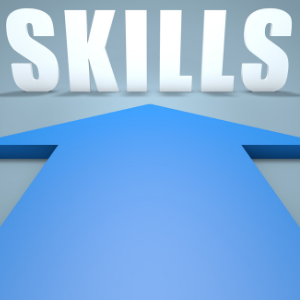
Downloads
Published
How to Cite
Issue
Section
License
Copyright (c) 2022 Canadian Journal of Career Development

This work is licensed under a Creative Commons Attribution-NonCommercial-NoDerivatives 4.0 International License.

